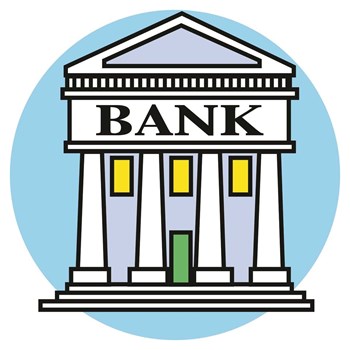
The New York metropolitan area probably has more banks and other financial institutions than anyplace else in the country. This is after all the city where Wall Street is located. Go down any major shopping street and chances are you’ll see five or six bank branches within two or three blocks—big banks like Chase and Citibank, smaller community banks, foreign-owned banks, you name it.
Add to that investment banks, online bank accounts, government bonds and other financial instruments, and it can be confusing to many—especially when you want to know where to put your co-op or condo’s money. Administrators need to keep their operating funds both safe and accessible, and also take care of their reserve and operating funds.
Types of Accounts
In most cases, what types of accounts do co-ops and condos have? We found a variety of answers. For example, Stephen Beer, CPA, a partner at the Manhattan accounting firm of Czarnowski & Beer, LLP, says that there are basically four types of accounts.
These include the basic operating checking account “that you pay your bills with,” reserve funds that can restricted for capital items or other items that the board deems necessary; an account to store extra money that is saved unexpectedly, which can later be moved into your operating fund or a money-making account; and an escrow account, often for security-deposit money that you’re holding for a few months for new residents. The “extra money” account, Beer says, often can be found in gas-heated buildings after mild winters, when the building spends less than it had budgeted for.
Richard Smolin, CPA, with the Brooklyn-based accounting firm Smolin & Altamura, CPAs, says that generally, co-ops have two or three basic accounts. The aforementioned operating accounts, he says, are typically checking accounts at an FDIC-insured institution. Buildings also have a savings account, “which can double as the reserve account for smaller buildings.” And larger buildings generally have separate, board-controlled reserve accounts.
“Size matters,” Smolin adds. “For a smaller building, two accounts should be sufficient. A larger building may have three, or even four.”
Is there a difference between how co-ops and condos handle their funds? “Based on my experience working with co-ops and condominiums,” says Gary Kokalari, a senior financial advisor for Merrill Lynch, “there’s not a great difference between the type of basic accounts used by co-ops and condos.”
What factors enter into where a co-op or condo decides to conduct its financial business? By the accounts of all concerned, business relationships and referrals from others are key. Sometimes it’s the property manager, who recommends a bank he or she knows, other times it’s one of the board members that knows of a bank with a good record or does some research on financial institutions.
“Another factor” says Beer, “would be the bank fees.” And since a lockbox is important to most of the city’s residential buildings, he says, a bank that has an inexpensive lockbox or offers free lockboxes with accounts would definitely be a plus. A lockbox is a banking service that simplifies collection and processing of account receivables by having customer (shareholder or unit owner) payments mailed directly to a location accessible by the bank.
Becoming Creative
For some types of accounts, buildings may go for something other than the typical checking or savings account, although as fiduciaries, there are limits on what boards can do. One strategy, says Carl Cesarano, CPA, of the certified public accounting firm of Cesarano & Khan, P.C., in Floral Park, is to “ladder” certificates of deposit—to predict what expenses the board will have two, three or four years from now, and then have one CD that matures in two years, another that matures in three years, and so on.
In other cases, he says, boards can use the services of brokerage houses to get FDIC-insured products. These brokers have wide-ranging networks and can try to maximize the FDIC coverage. For example, they can spread the money over several accounts so none of the accounts has money over the FDIC insurance limit, which is $250,000 (as many readers know, it used to be $100,000). “It also gives them a kind of one-stop shopping—you call the broker to do the deal.”
A similar strategy is to use the Certificate of Deposit Registry Service, also known as CDARS. They can also take one deposit and spread it through several banks, and can tell you, for example, that “there’s a bank in Wichita, Kansas, offering a great rate and is FDIC-insured,” says Cesarano.
However, Cesarano warns, co-ops and condos have to do their due diligence to find out whether institutions and/or products are financially stable. “I’ve seen situations where boards have bought annuities sold through banks, but you have to watch them because they’re not insured. They’re sold through the bank, but they’re really not part of the bank. Many times they [the boards] believe the annuity is part of the bank, but it’s not.”
CDs seem to be a good choice for developments, at least according to many of those interviewed for this article. Some experts also favor treasury bills but others avoid them because of their low interest rates.
Experts on Staff
With all of these complications, do banks have experts on staff, who specialize in the particular concerns of co-op and condo buildings? There are several answers to this question, representing several different viewpoints.
According to Beer, there are such in-bank experts but they typically tend to work with property management firms. “To the bank, they’re a bigger client to get [than an individual building.]”
Smolin adds, “I am not sure if the concerns of a co-op or condominium require specialization. I believe any competent bank officer should be able to handle these issues.”
“Based on my experience,” says Kokalari, “commercial banks typically have account representatives who service operating accounts for managing agents and who are familiar with the day-to-day transactional banking needs related to managing co-ops and condos.” However, he says, “As far as managing reserve investment accounts are concerned, to my knowledge, there’s not a wide field of people or institutions who are set up to specifically service these types of accounts.” He adds that his firm, Merrill Lynch, has an array of products that are well suited to the needs of serving reserve fund investors.
And Cesarano warns, “A lot of banks don’t know the legal stuff around the co-op or condo. Many of these banks don’t even know how to classify them, especially condos, let alone help them. Many banks are trying as hard to as possible to attract accounts, and there’s not a lot of specialization.”
One company that specializes in the needs of cooperative banking services and lending is the nationwide National Cooperative Bank or NCB. Headquartered in Washington, D.C., and Arlington, VA with offices in New York City, Ohio, California, and Alaska, NCB provides a full suite of comprehensive banking and financial services to cooperatives and member-owned organizations throughout the country.
NCB, according to Jared Tunnell, an NCB vice president, in charge of the company’s tri-state initiatives, offers term loans, CDs and money market loans, lines of credit, capital improvement financing, reserve accounts, commercial and residential mortgages, lockbox and payment processing. “So whether they pay by check, credit card, ACH, we can process all those payments. Monthly maintenance fees, we can process those,” he says.
As far as differences between a co-op and a condo, Tunnell says there is little difference in what they need financially. “Typically not. They’re managed by a management company. A lot of management companies manage both co-ops and condos. The only real difference is that cooperatives can access a long term fixed rate for their underlying mortgage. Because a condo doesn’t own real estate, they can’t apply that as collateral, so their loans are typically shorter term capital improvement loans,” Tunnell says, “while cooperatives can take a long term fixed rate.”
“Typically, a management company will work with a financial institution that understands their needs. If you want to pay by check, pay by credit card, ACH, and if you want to get the most bang for your buck, and competitive pricing because it passes on to the unit owners in their condo or co-op fees, they will want to work with a bank that understands your business model, and can give you the full service banking you need.”
NCB also provides banking and financial services to individual unit owners and have been serving the community association market as well for over 20 years, he says. In 2012, NCB provided nearly $1.4 billion in loans to cooperative and community organizations across the United States, of which $232 million served low to moderate-income communities. In September, the New York office originated nearly $20 million in new financing for local cooperatives.
Efficiency & Transparency
Given some of these issues, how can buildings make their financial business more efficient—especially to make them run more transparently for unit owners and to make them less prone to mismanagement or fraud?
In general, buildings should have their accounts accessible by the board, not only the managing agent. Most buildings have a treasurer who has some expertise in financial matters, and some larger co-ops and condos have an entire finance committee. Someone from the board should look at bills, look at the monthly reports, and establish limits on payments.
At the end of a fiscal period, Cesarano reminds us, the board or management should have a professional auditor examine the books. “They’re all part of the team, the board, the managing agent and the auditor,” he says.
One obvious way to streamline the co-op or condo’s financial business is to minimize or reduce the number of accounts. “Some buildings,” said Michael Esposito, partner at the Manhattan-based accounting firm of Kleiman & Weinshank, LLP, “have 8, 10, 12 accounts. You can lose track of the amount of dollars, and it makes things more difficult to manage.”
Smolin concurs, saying “Sometimes [buildings] can’t even get to the money because the officers in the building who opened the accounts are no longer there!”
No matter how many accounts there are, there have to be checks and balances. Most accountants say that at least two people should be required to sign off on withdrawals that entail any amount of money over a certain amount. In many cases, two people should be required to sign checks—sometimes a board member and the manager, sometimes the president and the treasurer.
As we’ve mentioned, it’s also important to have a treasurer who is knowledgeable about finances. Bank accounts can be made accessible online—some banks provide that service. Also, you can ask a bank to notify you if you have an overdraft.
“The best managed buildings have board oversight,” says Esposito. “The board reviews invoices and signs checks. Some of them really review the management reports and make sure that a timely bank report is done, and reconcile the bank balance to the book balance. The board should review management reports very clearly and review the flow of cash.”
In some cases, co-op or condos use debit cards. However, Cesarano calls them a “slippery slope—you’ve got guys out there who can just tap in [to the account] and do stuff. If you’re going to go that route, monthly statements have to be scrutinized and reviewed.” Most of the time, adds Beer, credit, not debit, cards are used for purchases such as maintenance items.
Which Reports, to Whom?
Which reports should the board be reviewing? One, of course, is the bank statement. Often, banks will send one copy to the managing agent, one to the board, and a third to an accountant or financial advisor.
Smolin says the managing agent should send a copy of all the building’s bank and reserve accounts in their monthly reports. “It the building is board-controlled,” he says, “the treasurer should send a copy of the reserve account to their CPA monthly.”
Kokalari, representing Merrill Lynch, says, “In addition to the monthly statement, at Merrill Lynch we have the ability to provide customized interim reports that provide further insight into the status of a reserve portfolio, such as the maturity schedule of CD holdings. This can be very helpful to boards that are trying to determine funding schedules for capital expenditure projects and can also facilitate the investment decision-making process.”
If all of this still seems complicated to you, there are quite a few resources to help you deal with your finances. Co-ops and condos can approach a CPA, their financial advisor, organizations like the Council of New York Cooperatives and Condominiums (CNYC), or their property manager. Also, even though the Community Associations Institute (CAI) doesn’t have a chapter in New York City, CAI does have a Long Island chapter and the organization has quite a bit of online material.
And, of course, you have The Cooperator, to which you can access its online archive, anytime of the day or night. Go to www.cooperator.com for more information.
Raanan Geberer is a freelance writer and a frequent contributor to The Cooperator. Managing Editor Debra A. Estock contributed to this article.






Comments
Leave a Comment